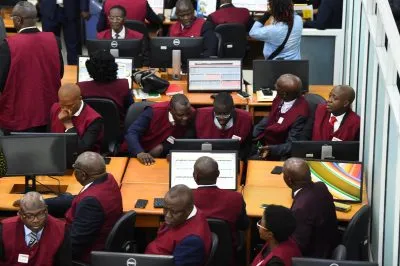After an impressive early response to coronavirus, the situation is once again deteriorating across Africa. Africa’s coronavirus case fatality rate stood at 2.5% in late January, higher than the global level of 2.2%, according to John Nkengasong, head of Africa CDC.
Earlier in the pandemic, Africa’s death rate had been below the global average, but 21 African countries had recorded a death rate of above 3%, including Egypt, the Democratic Republic of Congo, and Sudan, which Nkengasong said was “very worrying and concerning for all of us”.
After an encouraging early response to the virus – including tough lockdowns – many countries had to ease off on restrictive measures in the second half of 2020 to preserve their fragile economies.
Unfortunately, as seen in the developed world, laxity allows the virus to return. The continent’s confirmed cases – probably significantly below the true figure – have risen to almost 3.5m. South Africa alone accounts for more than 1.4m confirmed cases and over 41,000 deaths, figures that are likely to represent the tip of the iceberg.
The virus has no respect for status – in January, Zimbabwean foreign minister Sibusiso Moyo and South African minister in the presidency Jackson Mthembu were among the high-profile victims to succumb.
While the situation is desperate, there may be light at the end of the tunnel. Scientists have achieved extraordinary feats in getting a range of vaccines into production. More than 98.3m doses have been administered in 62 countries, according to Bloomberg.
But despite plentiful warnings, too few are getting to Africa. Vaccine nationalism remains rife as countries compete for limited supplies. Covax, the alliance which aims to provide vaccines to developing countries and which many poor African countries are relying on, cannot alone meet the extraordinary demand.
A threat to one is a threat to all
So far, 1.27bn doses have been secured for Africa through various initiatives, enough to fully inoculate nearly 50% of the continent’s population this year, but most will not arrive for months and many logistical problems will have to be overcome in their distribution.
Recent events have shown the dangers of leaving the developing world to fend for itself. The emergence of a South African variant which spreads faster and has reached other parts of the globe once again shows that a threat to one nation is a threat to all.
“We are all not safe if some countries are vaccinating their people and other countries are not,” South African president Cyril Ramaphosa told the virtual World Economic Forum in late January.
The global community, vaccine manufacturers and Africa’s multilateral institutions must redouble efforts to get vaccines to the continent. Until vaccines start to reach Africa, a return to restrictive measures appears inevitable, particularly in the most urbanised and densely populated countries. As with the first wave, the economic cost will be painful. But with fragile health systems under extraordinary strain and limited care for the most vulnerable patients, policymakers must once again prepare to shield their citizens from the worst.
Want to continue reading? Subscribe today.
You've read all your free articles for this month! Subscribe now to enjoy full access to our content.
Digital Monthly
£8.00 / month
Receive full unlimited access to our articles, opinions, podcasts and more.
Digital Yearly
£70.00 / year
Our best value offer - save £26 and gain access to all of our digital content for an entire year!
 Sign in with Google
Sign in with Google 



